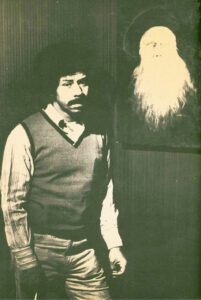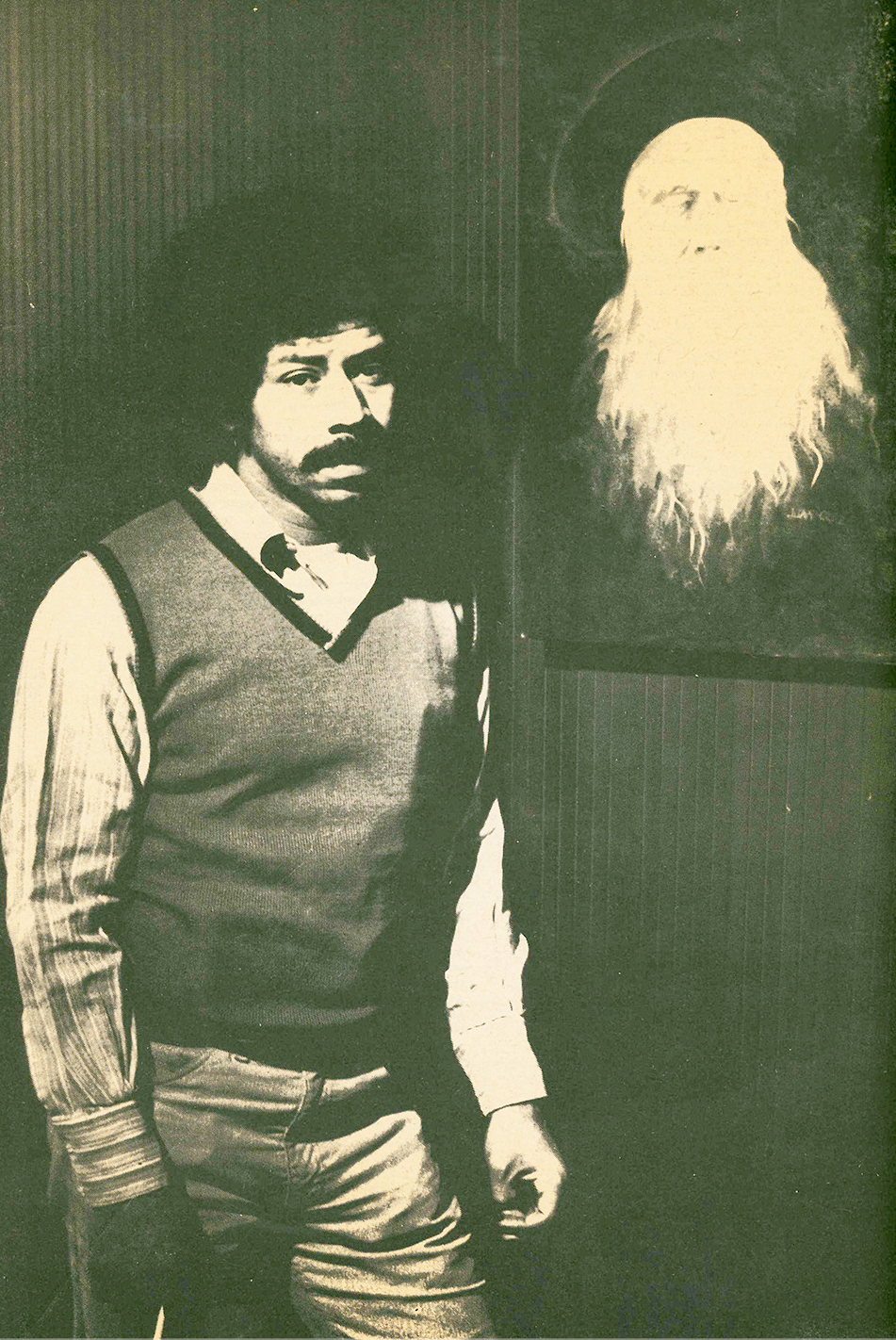The Everson Remembers Juan Cruz
It is with great sadness that the Everson has learned of the recent passing of Juan Cruz, a beloved artist and member of our community for more than fifty years.
It is no secret that Juan’s early life was marked by violence. In 1960, he was convicted for a shooting during a gang fight, and was sentenced to spend the rest of his life in prison. In 1968, while serving time in Auburn Prison (now the Auburn Correctional Facility), Juan’s life was forever changed. The 1978 book, Born into a Felony, which highlighted his transformation, noted that:
With a paintbrush and some canvas, Juan discovered two worlds. One consisted of art; the other discovery was himself. At that moment the realization hit home that the long search was over: He had found the Juan Cruz that he had been searching for.
Juan’s work caught the eye of Everson Museum of Art director James Harithas, who awarded him a solo show at the Museum, which drew considerable praise from the viewing public. Harithas included Juan’s work in the exhibition, From Within, which traveled to the Smithsonian Art Museum. His work was acquired by celebrities, such as singer/songwriter Isaac Hayes, as well as former New York mayor John V. Lindsay and Syracuse Mayor Lee Alexander. Juan was granted clemency on Christmas 1975, and he began working as a guard for the Everson while attending classes at Syracuse University.
In 2019, Everson curators worked closely with Juan to present a retrospective of his work featuring 59 paintings and sculptures, as well as several dozen drawings and sketches. Juan’s home and studio were a short drive from the Everson, which meant that he would often stop by for impromptu visits and check-ins throughout the planning process for his exhibition. These continued after the exhibition closed, and a visit from Juan always brightened the day of staff members.
In the aforementioned Born into a Felony, writer Russ Palmer recounted an encounter with Juan before his eventual parole:
I saw Juan in the mess hall the day before Albany would make its decision known. As he came down the aisle I raised two crossed fingers. Juan smiled and nodded in silent understanding. The next day we would learn over prison radio that Juan had been denied.
It was in the prison yard later that week that I saw Juan again. Christmas was a few days away and snow covered the ground. As we spoke, I noticed he was carrying a new canvas. We talked about the usual things: the weather, school. Then he mentioned the commutation. There wasn’t much I could say. A few moments later we parted.
I watched as Juan crossed the yard. A cold December wind was blowing and the ground was slippery. But I knew he would make it and I knew that no wind, no matter how strong, no wall, no matter how high, could ever defeat Juan Cruz.
We will always remember Juan’s quiet kindness, wit, and sense of humor. His presence in the Syracuse community will be missed.



